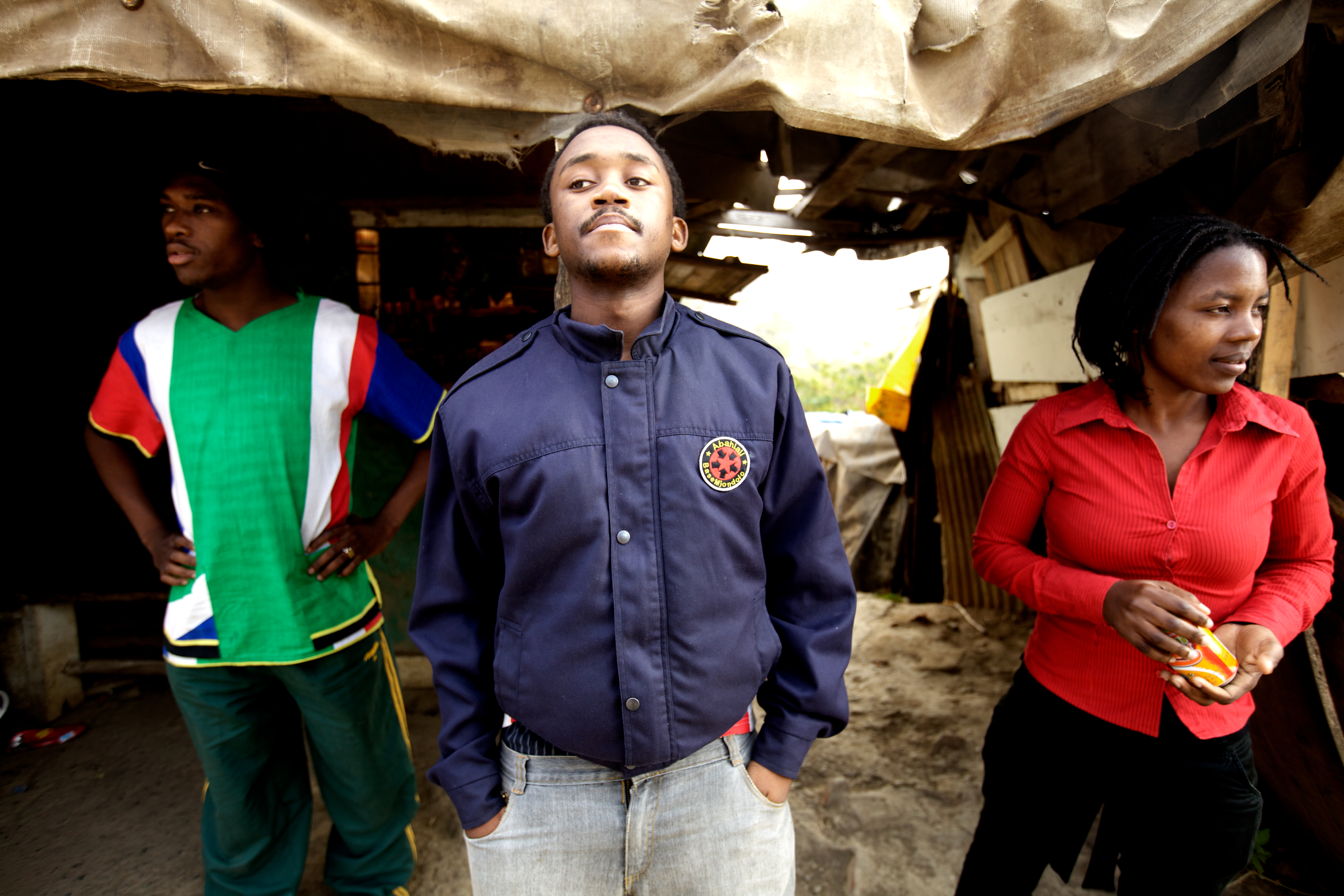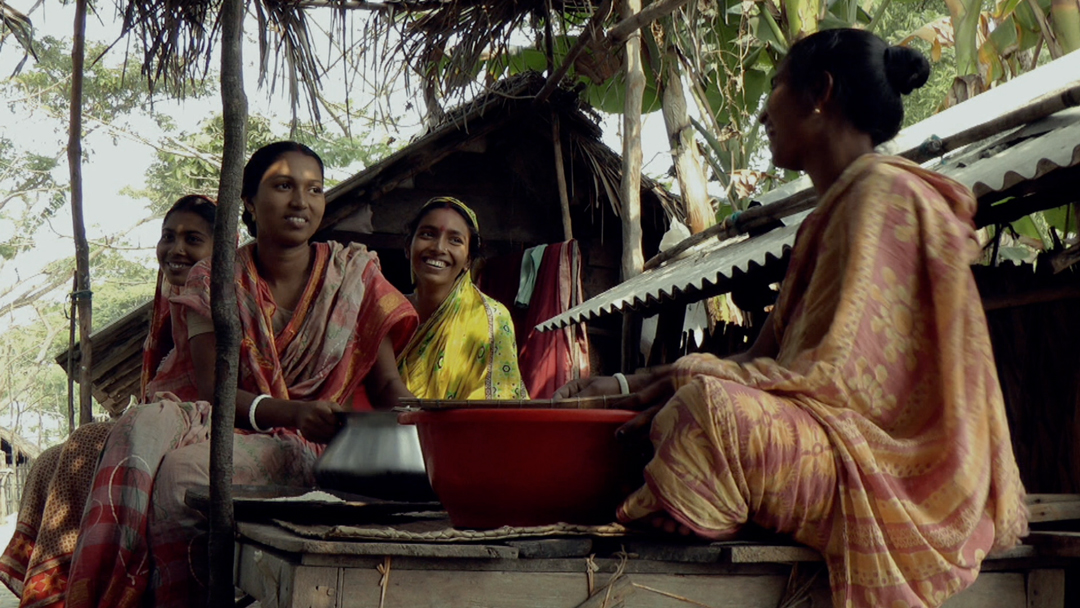This year, the FILMA feminist film festival presents a program of films that look at housing not in terms of architecture or aesthetics, but as a basic human right. What is the actual value of a home for a person? Especially in a world where many people have either lost their homes or have never had one and will never have it due to wars, poverty, colonialism, and xenophobia. Anastasia Bobrova, the co-curator of the program, together with the Filmа team, chose five stories that are different in experience but similar in their universality to the problem of housing. Read Anastasia's reflections on the films and her sense of home in the curatorial text.
148 Lesya Ukrainka Street is the place where my great-grandmother taught me to play chess, where my parents' friends gathered, where I spent the first years of my life, and where I am still officially registered. Of course over the years, I have called many places "home": dorm rooms, rented apartments, and friends' houses. However, it was at Number 148 that I realized the importance of having a space I could always come back to. After all, home is not just walls or a roof over your head protecting you from the cold and wind. Home is not only a physical but also a symbolic space for relaxation, joy and love, a place where you can be close to your loved ones.
This year's program focuses on films which consider housing not in terms of architecture or aesthetics, but as a basic human right, and which document the importance of housing in order to access other benefits, such as healthcare or social support. The geography of the program is diverse and includes films from Bangladesh, the United States, Canada, South Africa, and Italy. Although the contexts are unique, all the films point to the universality of housing problems. That is why we propose to not just focus on the personal stories and suffering of the protagonists, but to pay attention to the broader political, economic and social environment in which events are unfolding.

This Is an Address by Sasha Wortzel reveals the “gray areas” of urban space where people invisible to the system settle. They are homeless, HIV-positive, queer people who often don’t receive formal social assistance from the city or the state, partially because they “don’t have an actual address.” Besides that, the film focuses on the gentrification and aestheticization of American cities, and the increasing “tourist” appeal, inevitably accompanied by displacement. Finally, in 2018, a settlement of homeless people near the Hudson River in New York City was destroyed as part of a waterfront revitalization project and a plan to “improve the cultural corridor” in Manhattan.
Similar processes, namely displacement and attempts to deprive communities of their voices, are taking place in Durban, South Africa. Googling this city brings up the coastline, skyscrapers, people walking among the fountains on the promenade, and also some information about one of the largest ports in the world. Dear Mandela by Dara Kell and Christopher Nizza offers a different view on Durban from the perspective of informal settlements a few dozen kilometers outside the city, where people have been living for years waiting for permanent housing. Some of them have never seen the ocean. Home in this film is something South Africa’s first democratic government is constantly promising and then postponing. The constitution guarantees the right to adequate housing and protection from unlawful evictions. Nevertheless, the film emphasizes the contradiction between declared political goals and reality. The community becomes a key driver in advocacy for the right to housing, and faces violence and hostility for doing so.
Overall, the importance of solidarity and support networks is a leitmotif of the entire program. “You don’t just pass by when people are building a house”, states one of Dear Mandela’s protagonists. If people need to prove their right to a decent life, it’s easier to stand together than to fight alone.

The issue of social support is particularly challenging in cities, which often turn into spaces of isolation and atomization. In these environments, structural inequalities and injustice are magnified. In No Address, Alanis Obomsavin tells the stories of young indigenous people in Canada who move to Montreal in search of work and end up on the streets without community or government support. "In the city, while they might be surrounded by people everywhere, they are left with the feeling of not belonging. Their lives continue on the edge of a dangerous world," Alanis emphasizes.

Are You Listening! by Kamar Ahmad Simon follows the theme of the joint defense of housing rights by examining the reconstruction of a village in Bangladesh after Cyclone Aila. In 2009, storms left about a million people in the country homeless. This film draws attention to the ongoing struggle against the forces of nature and invites us to think about the consequences of climate change and its impact on vulnerable groups.

This Is an Address program has collected both retrospective and fairly contemporary films, allowing viewers to look at changes in the housing sector over time. For instance, No Address was released in 1988, but the issue of access to housing, one of the film’s main themes, has become even more acute in Canada in recent years. According to the latest research, one in five households in Montreal lacks the means to pay for housing. Decrease in social housing public investment and social support since the 1980s resulted in an increase in the rate of homelessness in Canada. Moreover, the risk of homelessness is much higher among indigenous people, a consequence of colonial policies and systemic discrimination.
Another recurring motif of the program is informality and its manifestations in housing, employment, and in the everyday life of the protagonists. "Constant temporality" is one way to describe reality in the film The Village of Roses. Hanna Heilborn’s documentary depicts several years in the life of a Roma family living in a settlement near Milan. The Village of Roses is on the periphery, literally and symbolically. However, the settlement often finds itself at the center of political debate, as its residents are constantly threatened with eviction. The tenuous situation is further exacerbated by the fact that the city refuses to guarantee social infrastructure for Roma and Sinti. Even the school bus never stops near the Village of Roses. Heilborn’s film is a story of life in an uncertain environment, where constructing a concrete foundation can be considered an offense.

On the surface, Ukrainian cities look strikingly different from the ones shown in the program. And they are e. However, homelessness, poverty, lack of affordable housing and social support are problems people in Ukraine face on a daily basis, and they have only worsened during the full-scale war.
The Russian war has displaced millions of people, destroyed millions of homes, and created an unprecedented housing crisis. It turned out that Ukraine has few solutions to offer to all those who lost their homes. It’s the unregulated and unprotected commercial rental sector, shipping-container camps, dormitories and gyms. Before the full-scale invasion, Ukrainian cities had only a few thousand social and temporary housing units each. For example, according to official data, the capital had 72 "social" apartments, clearly not enough to meet the growing need for affordable housing. Thousands of displaced people in Ukraine live in uncertainty in "places of temporary residence." Moreover, certain groups, such as the homeless, are left out of political discourse and reconstruction plans. These challenges should prompt a rethinking of attitudes toward housing and a redefinition of housing policy strategies in Ukraine, and our program is yet another reminder that we all need a home.
The Filma. feminist film festival will be held online from November 27th till December 10th. All the films will be available with Ukrainian extended (SDH) or English subtitles. For certain ones, choosing a sound description in Ukrainian will be possible. The films will be broadcast free on the festival's website as usual.
Main image: a still from the film No Address.



